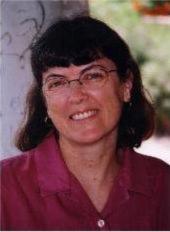Please Welcome…Karen Hancock
(*Originally posted January 2007)

This month we have esteemed novelist Karen Hancock as our interview guest at WhereTheMapEnds.com.
Karen is the author of Arena, The Light of Eidon, The Shadow Within, Shadow Over Kiriath, and Return of the Guardian-King.
Every one of Karen’s Christian fantasies and SF have won the Christy Award for excellence in Christian fiction.
Kathy is warm and generous and approachable and articulate. All the things you hope to find in an author and friend.
And now the interview.
WhereTheMapEnds: Catch us up with what’s going on in your life.
Karen Hancock: I’ve just finished up Return of the Guardian-King, the fourth and final book in my Legends of the Guardian-King series. I’ve been almost a year and a half working on it, and it took two deadline extensions, but it’s finally done and set to release in April 2007. I can hardly believe I’m done.
WhereTheMapEnds: Very exciting! You’ve done so much to revive Christian fantasy. So, tell us, what is your favorite speculative novel of all time (Christian or secular) and why is that your favorite?
Karen Hancock: At the moment, I would say Robin Hobb’s Assassin’s Apprentice is my favorite. (Although to be fair, I’ve only read it twice, whereas I’ve read Dune five times, Watchers (by Dean Koontz) and Watership Down at least three…)
But Assassin’s Apprentice had wonderful writing, exquisite characterization, a beautifully realized world in addition to poignant relationships—including those with dogs and horses. It has hidden identities, and focuses on concepts of honor and duty.
And, though I don’t think it’s deliberate, it also has several parallels to the Christian life, in particular the way the hero, who owes everything he has and is to the king, has sworn himself over as the “king’s man.” Everything in his life must take second place to his king, and I loved thinking about our relationship with the Lord in that way as I watched the concept played out in practical decision and action.
WhereTheMapEnds: What made you want to write Christian speculative fiction?
Karen Hancock: I’ve always loved speculative fiction—from fairy tales to SF to fantasy, and have read widely in the field. I also started writing at a young age. When I got saved, as a young adult, I wanted to write about all the wonderful things I was learning about the spiritual life and God, things I’d never even imagined before.
Then I saw Star Wars and all the allegorical possibilities in that first episode (A New Hope) jumped out at me. I knew immediately that I wanted to write speculative fiction, for it seemed the perfect vehicle for communicating the spiritual truths that had become the core of my life. I think the genre is better than any other for doing so.
WhereTheMapEnds: I completely agree. There’s something about speculative fiction, especially fantasy, that allows you to more readily deal with spiritual matters. Maybe it’s the prevalence of Good vs. Evil themes. And I’m also with you on the impact of Star Wars: A New Hope. When I saw it, I knew I wanted to be a storyteller. Okay, Karen, how was your first idea for a Christian speculative novel received (by anyone: spouse, friends, parents, agent, publisher, readers, reviewers, etc.)?
Karen Hancock: The first person I told about my idea taught math at the same high school where my husband taught. She was intrigued and when I gave her the chapter to read she returned it with very favorable remarks.
WhereTheMapEnds: Whew, huh? White knuckle time for you, I’ll bet. Okay, what is your favorite speculative genre to read? To write? If they’re different, talk about that.
Karen Hancock: My favorite to read is probably fantasy, though I enjoy science fiction, too, though usually in the space opera, science-fantasy categories. I’ve written in both genres, and enjoyed both.
WhereTheMapEnds: How would you characterize the current state of Christian speculative fiction writing and/or publishing?
Karen Hancock: Though more accepted in the Christian publishing industry now than it was when I started, I think the genre is still searching for its audience, and I suspect that audience mostly has no idea it exists.
WhereTheMapEnds: I’m afraid you’re right. Most of them have despaired of ever finding it. Have you seen anything lately that encourages you about Christian speculative writing and/or publishing?
Karen Hancock: The increased openness to publishing it, mentioned above, and the explosion of fantasy series for young people is very encouraging. I’m also excited by the steadily improving cover art.
WhereTheMapEnds: So true. Yours have great art, by the way. I especially like the cover for The Shadow Within. All right, what have you seen that discourages or frustrates you about Christian speculative fiction writing and/or publishing?
Karen Hancock: I suppose the continued low sales, and maybe the lack of sticking with a book, series, or line despite initial low sales. While I understand the reasons for abandoning something that’s not turning a high enough profit (or any profit at all), it’s hard to get something going if it keeps disappearing for long periods of time. It may just be something readers will have to generate spontaneously, or perhaps, more accurately, a field God has to promote in His time…
WhereTheMapEnds: Preach it, sister! Bring it on! What would you like to see changed regarding Christian speculative fiction writing and/or publishing?
Karen Hancock: I’d love to see lots of great quality Christian Spec fic with fabulous covers on the shelves! And things do seem to be moving in that direction.
WhereTheMapEnds: What do you think Christian speculative fiction writing and/or publishing will look like in three years? Five years? Ten years?
Karen Hancock: I really have no idea, but a friend was pointing out the other day that the success of the young adult fantasies indicates there are a lot of young people reading and loving the genre. Those young people are going to grow up and provide a market for adult fantasies. My friend seemed to think it might be on a par with the expansion of speculative fiction that we’ve seen in the general market over the last few decades. I hope he’s right.
WhereTheMapEnds: Me, too. I think that’s a logical argument. Kind of like how the interest in World Cup soccer has increased in the U.S. in the years since kids started growing up playing soccer. All right, what advice would you give to someone who aspires to write and publish Christian speculative fiction?
Karen Hancock: Don’t be in too much of a hurry to publish. Learn the craft—not only of writing fiction but of writing speculative fiction. There are extra things you must know how to do, and there are additional pitfalls.
One pitfall is the writer’s own love affair with the world that he’s created—which can cause him to focus all his attention on that world to the detriment of character, story, and even the details of verisimilitude needed to create a successful scene.
It also presents the terrible temptation to drop great lumps of exposition, or, even worse, withhold it altogether for the sake of getting the story going, only to leave the reader with nothing to hang on to or care about. It’s a fine line to walk, but walk it we must.
WhereTheMapEnds: That’s terrific advice, Karen. What’s the best book or seminar on fiction writing you know?
Karen Hancock: Well, I always recommend Dean Koontz’s How to Write Best-Selling Fiction, because that’s the one I used the most when I was first learning. It’s out of print now, unfortunately. I have also found Jack Bickham’s Scene and Structure to be quite helpful.
Another thing I recommend is studying the works of writers you admire—even to the point of copying out portions of their prose (by hand or keyboard, not copy machine) to see how the pieces go together. How do they begin the book? How do they introduce a character? How do they move the characters around, slip bits of exposition into dialog, etc.? Set those portions up against similar passages in your own work and see if you can determine what is different be-tween what you’ve done and what they’ve done. I learned a whole lot by doing that sort of thing.
WhereTheMapEnds: For you, what’s the best part about writing and publishing Christian speculative fiction?
Karen Hancock: I get to write about the characters, stories and spiritual issues that matter most to me and share them with readers who actually want to read them! What a privilege to be a part of something that draws a reader’s awareness to some wonderful aspect of God’s character they hadn’t considered or had forgotten!
WhereTheMapEnds: Awesome. What writing project(s) are you working on now?
Karen Hancock: My next book is a science-fantasy-suspense, though I think Bethany House is planning to market it as just suspense. Its working title is Black Box, but I’ve already been told that’ll have to change. Here’s a bit from the proposal synopsis:
When Lacey McHenry accepts a prestigious research fellowship at the world-renowned Kendell-Jakes Longevity Institute, she sees it as a new start on a life shattered by an abusive, now-ended marriage. But when a disturbing late night encounter with a psychopathic intruder leads to an unexpected cover-up by Institute authorities, she soon finds herself in over her head, a lone mouse in an elaborate game of deception and seduction whose purpose she cannot begin to guess.
Set in bizarre world that is part of our own yet separate from it, Black Box uses cults, cloning, ancient civilizations, aliens, and the nature of perception and deceit to explore the greatest mystery of all—human volition. [Editor’s note: This novel was finally released as The Enclave]
WhereTheMapEnds: Woohoo, that sounds great! Write that thing, pronto! Okay, what’s a cool speculative story idea you’ve had lately?
Karen Hancock: Alas, I’ve had a turnip for a brain for about a month now, and have had no cool speculative story ideas lately, although there are some notions running about in the back of my mind for a series that would follow events depicted in Legends of the Guardian-King. I don’t know if that’s something God will ever lead me to write. At the moment, I can sense that my creative well has been drained dry and it’s time to go refill it.
WhereTheMapEnds: What’s the best speculative story (Christian or secular, book or otherwise) you’ve encountered lately?
Karen Hancock: That would have to be Robin Hobb’s Liveship Traders Trilogy. Of course, each book is something like 300,000 words long, and it took me all year to read them, so it’s almost the only speculative story I’ve encountered, but I have little doubt it would be at the top of the list regardless. She’s an awesome writer.
WhereTheMapEnds: What else would you like to say to the readers of WhereTheMapEnds.com?
Karen Hancock: Thanks for reading! I’m honored to have been interviewed here and delighted that Jeff has created this website. If you’ve not explored it yet, I urge you to do so. There is a wealth of information here for fans of Christian speculative fiction!
That’s All for This Time
What a wonderful interview! Thanks again to Karen Hancock. Be sure to her at her home on the web www.kmhancock.com.

